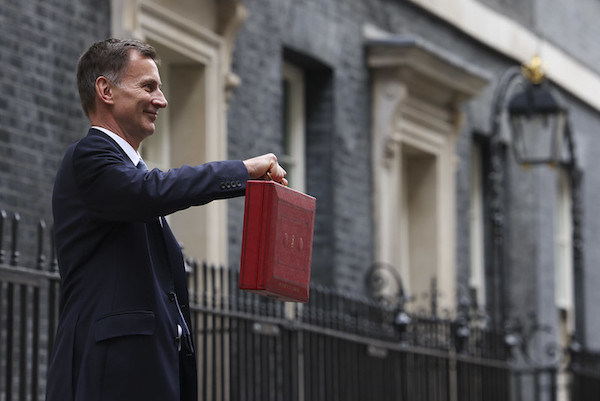Cafod has expressed its disappointment at the government’s budget, calling its prioritisation of defence spending over aid “unforgivable”.
The chancellor, Jeremy Hunt, delivered his first budget to the House of Commons on Wednesday, with a stated focus on encouraging early retirees to return to work and promoting business investment.
It also included a commitment to increase the defence budget by £11 billion over the next five years, to just under 2.25 per cent of the gross domestic product.
“Spending £11 billion more on the military is unforgivable when millions face famine in East Africa,” said Neil Thorns, Cafod’s director of advocacy.
“It cannot be right for the UK to cut its aid budget despite the region suffering its worst droughts in decades.”
Christian Aid also sharply criticised the budget.
“Not only has the aid pot been stunted and raided by other government departments, but it has also lost its focus on tackling poverty and its causes,” said the charity’s chief of UK advocacy, Sophie Powell.
The responses follow a letter to the government from the all-party parliamentary group for the Friends of Cafod calling for further action in East Africa, where drought is spiralling into famine as small-scale farmers are unable to grow crops or feed livestock.
The letter, dated 14 March from the office of the group’s chair, Labour MP Catherine McKinnell, urged Andrew Mitchell, the minister for development and Africa, “to scale up the UK government’s response and disburse significant, quality and flexible funding for the humanitarian crisis in East Africa”.
The thirteen signatories, including the Conservative MP Alexander Stafford, Labour’s Sarah Champion and the crossbencher Baroness O’Loan, say that the UK’s current commitment of £156 million to the region is 80 per cent less than it provided during a drought six years ago.
“In the context of a diminishing aid budget, it is vital that what remains of the budget is spent effectively,” they say, emphasising the role of local aid organisations in responding to communities’ needs.
“Taking immediate action, rather than waiting for the crisis to escalate, may help to prevent human death.”
Verity Johnson, Cafod’s head of Africa region, warned that people in northern Kenya where the charity’s partners operate were “increasingly desperate”.
“The people tell me they feel abandoned and they’re losing faith,” she said. “We need the UK and the international community to act before it is too late.”
In Cafod’s response to the government’s budget, Mr Thorns said that the drought was a result of climate change driven by wealthy countries like the UK.
“If we continue to turn away, there will be further destabilisation of the region and the inevitable consequences that would bring, including mass movement of people and other effects,” he said.



 Loading ...
Loading ...